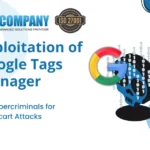Here’s why you should disregard word count when creating SEO content and instead concentrate on on-page SEO factors.
One of the most often asked novice questions concerning SEO content is about word count.
“What’s the best word count for SEO?”
That is an excellent question. When deciding which material to rank, search engines use a wide range of characteristics. Why wouldn’t one of them be word count?
As a result, content providers are concerned about the duration of their material. “Is 1,000 words enough to rank?” they ask. ” Should we write the same number of words in each blog?”
But here’s the point…
The number of words is not a ranking criterion. It makes no difference how many words your content item has. Google stated as much.
Table of Contents
ToggleWhy does the ideal word count for SEO not exist?
There is no “one size fits all” word count that will instantly make your site rank higher. This also implies that longer isn’t necessarily better.
It’s just not that easy. Assume you write a blog article about a certain keyword… However, it is not ranked.
Would adding more relevant material to that page help it climb to the top of Google’s search results?
No, since adding more words does not always improve it. Adding extra words simply lengthens it.
Length is not equal to Quality.
So, other than a higher word count, what would improve your blog?
Ensure that the content targets the keyword’s user purpose: When a searcher types a keyword into the search field, what kind of information are they seeking? Make it available.
- Making certain that the information is of good quality: Is it written well? Helpful? Original? Valuable? Is it informative, educational or entertaining??
- Making certain that the text is readable: Is it properly formatted? Is it readable? Are there descriptive titles that divide the text into sections?
- Assuring that the content is complete: Is your material lacking in vital information, or does it give just enough to please a searcher?
All of these characteristics are more important than word count.
If you alter your text considering these criteria, you may discover that it becomes lengthier. However, this is a result of creating helpful material for a certain search query. The word count doesn’t make much difference. What matters is that those terms be relevant to the searcher’s wants. More words are sometimes required to be relevant. However, sometimes fewer words are required.
What is the optimal word count for a blog or article?
Now that we’ve proven that there is no such thing as the ideal word count for SEO. We can go on to find the proper word count on a case-by-case basis.
Depending on the topic you’re writing about, each piece of SEO content you create will have distinct requirements. Moreover, having a basic word count to aim for each time can help you create material that is both fulfilling and covers all of the crucial aspects.
Here are a couple of methods for calculating the word count for each blog you write:
-
Examine the competition
First, examine what is currently ranking in Google for your term, and the length and word count of these articles. The idea is that if the search engine ranks certain content items highly, it signifies they meet its requirements. Furthermore, their level of depth and usefulness is appropriate for the search goal. That also implies that their average word counts are a reasonable guideline for what your word count should be.
But don’t stop at the word count. Consider the following:
- The quantity and content of main sections (H2s) in each blog.
- How thoroughly each aspect of the issue is discussed.
- What information is omitted or brushed over?
All of these considerations will influence the length of your content piece. Remember that you’re not simply aiming to match the best outcomes; you’re also striving to build something better.
-
Research the topic/keyword’s search intent
Along with researching the competitors, you should investigate the search intent of your keyword: Learn what searchers want to know or discover when they enter a query into a search engine.
What do they want, and how much information will they require to be satisfied?
Examine the results themselves to do this. Google’s first page will provide you with several suggestions about what searchers want and desire from a given keyword search.
When people search for the keyword, they aren’t seeking to read a complete article. They only seek a response. That is shown on the SERP.
- Demonstrate your subject-matter expertise
Google does not always know everything. Assume you are an expert on the topic/keyword under consideration. You see gaps in the knowledge offered in the top content. That’s your signal to write your content to cover those gaps.
This is an instance when your word count will diverge from what’s currently available, especially if the top of Google on the issue is missing a lot of important information.
However, this is also your chance to stand out. If the issue requires more depth than the SERP suggests, don’t be afraid to go in and provide it – even if your blog will be considerably longer than the average.
Why does long-form content score higher than short-form material?
We understand that word count isn’t everything. So, why does long-form content (anything longer than 1,000 words) score higher than short-form material?
Long-form material is more complete than short. Longer information is typically more detailed than shorter content. Additionally, it dives deeper into a topic, covers more aspects of it, and gives a greater explanation. Because longer material isn’t normally less, it has a greater chance of ranking – but only if the keyword requires it.
It includes additional keywords and keyword chances by definition. More words equal more natural keyword positions. particularly related phrases and synonyms. It’s as easy as that. Of course, keyword-stuffed extended material is an exception to ranking high.
Long-form material is more effective in demonstrating your knowledge and authority. Long-form material allows you more time and space to fully establish yourself. With longer paragraphs, you can better provide the value that the reader seeks through your professional knowledge. Of course, if your long-form material is full of fluff, you’ll have the opposite effect: you’ll turn readers off.
Apart from word count, strategies to increase your on-page SEO
Given that longer does not automatically imply better, what other ways can you improve your content without adding more words?
Structure of the page
The structure of your website – the headers, sections, and their order/formatting – provides crucial hints to Google regarding the content and its relevance to the search query. The structure also aids readers in engaging with your content and locating the information they require.
Ignoring page structure, failing to include headers, and failing to organise your information can restrict readability, which both readers and search engines dislike. As a result, divide your website into sections with relevant, informative headings and arrange it for reading.
Even if strong material is concealed inside it, a well-structured page with exceptional content can outrank a poorly-structured one.
Relevancy
Even if your content is excellent, it will not rank well if it is unrelated to the search query and the purpose behind that query. That implies you shouldn’t add extra material to an irrelevant page to increase results (it won’t). Instead, use clever modifications to make that page more relevant to searchers.
For example, perhaps you included sub-topics in your blog but did not focus on the proper ones. So, in the blog about constructing a dog home. You veered off into describing all the numerous sorts of dog houses available. While visitors only want to know how to build a simple, classic construction.
Another example: You developed a meaningful blog, but your headlines aren’t descriptive and don’t name each part appropriately. Making changes to your headlines will make your blog simpler to read and more relevant to both searchers and Google.
Readability and content quality
It doesn’t matter if you write the longest blog on the planet or if it’s badly written or illegible. If a blog isn’t ranking, take a close look at the content.
- Is it simple to understand?
- Is your blog well-organized? Is it in a logical order?
- Is the material unique? Is the issue presented without duplicating or reiterating what has previously been said?
- Is it designed for users? Is it aimed at a certain demographic? Is it beneficial to them?
- Are assertions and data supported by reliable sources?
- Are the links related to the material and of high quality?
Consider readability next. Is your material appropriately designed and organised so that consumers can quickly read, skim, or search it to discover a specific piece of information?
Finally, ask yourself and respond honestly: Does the content deliver value – does it successfully instruct, inform, or entertain the reader?
All of these factors are more essential than word quantity, and strengthening or modifying them will help your content’s potential for genuine outcomes.
Looking for seo content service? Visit now!







